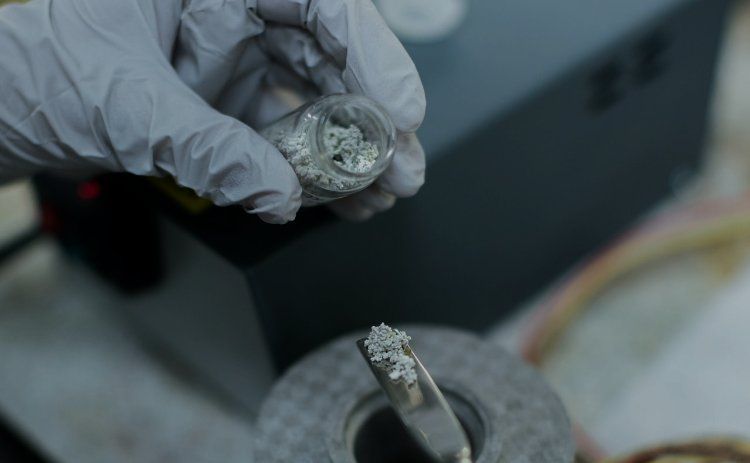
Student Research Projects in Chemistry
Student research projects in chemistry play a crucial role in the academic and professional development of students interested in the field. These projects provide hands-on experience, critical thinking skills, and the opportunity to contribute to scientific knowledge. This article will explore the benefits of student research projects in chemistry and provide guidance on how students can get involved in these projects.
1. Importance of Student Research Projects
Student research projects in chemistry allow students to apply theoretical knowledge learned in the classroom to real-world scenarios. By conducting experiments, analyzing data, and drawing conclusions, students develop a deeper understanding of chemical principles and practices. This hands-on experience also helps students cultivate problem-solving skills, critical thinking abilities, and scientific curiosity.
Furthermore, student research projects provide students with the opportunity to work closely with faculty members and other experts in the field. This mentorship relationship not only enhances the learning experience but also allows students to build valuable connections and network within the scientific community.
Moreover, student research projects often lead to the publication of research papers, presentations at conferences, and awards and recognitions. These accomplishments contribute to the students' academic and professional portfolio, making them stand out to potential employers or graduate school admissions committees.
2. Getting Involved in Student Research Projects
There are several ways for students to get involved in research projects in chemistry. One common method is to approach professors or research advisors at their university and express interest in participating in ongoing research projects. Students can also explore summer research opportunities, internships, or fellowships at research institutions, government agencies, or industry laboratories.
Students can also participate in undergraduate research programs or competitions that specifically focus on chemistry. These programs provide resources, guidance, and mentorship to help students develop and execute their research projects successfully. Additionally, students can join student organizations, such as chemistry clubs or honor societies, to connect with peers who share similar research interests.
Finally, students can consider conducting independent research projects under the guidance of a faculty mentor. This option allows students to explore their interests, design their experiments, and make a unique contribution to the field of chemistry.
3. Benefits of Student-Led Research Projects
Student-led research projects offer several advantages for students interested in chemistry. By taking ownership of their projects, students develop leadership skills, project management abilities, and research independence. These attributes are highly valued by employers and graduate school admissions committees.
Moreover, student-led research projects foster creativity, innovation, and scientific curiosity. Students are encouraged to think outside the box, explore new ideas, and push the boundaries of existing knowledge. This creative freedom allows students to make original contributions to the field of chemistry and leave a lasting impact on the scientific community.
Additionally, student-led research projects provide students with the flexibility to explore niche areas of interest, collaborate with multidisciplinary teams, and pursue interdisciplinary research opportunities. This diversity of experiences enhances students' academic and professional development and prepares them for successful careers in academia, industry, or government.
4. Developing a Successful Research Project
To develop a successful research project in chemistry, students should start by identifying a research question or problem that interests them. This question should be specific, relevant, and feasible within the constraints of the project timeline and resources available.
Next, students should conduct a thorough literature review to understand the current state of knowledge in the field and identify gaps or opportunities for further research. This review will help students develop a research hypothesis, design experimental protocols, and formulate data analysis methods.
Throughout the research process, students should maintain detailed records of their experiments, observations, and results. This documentation is crucial for ensuring the reproducibility and reliability of the research findings and for presenting the research outcomes in reports, presentations, or publications.
In conclusion, student research projects in chemistry offer invaluable learning experiences, professional development opportunities, and personal growth for students interested in the field. By getting involved in research projects, students can apply classroom knowledge to real-world problems, develop critical thinking skills, and contribute to scientific advancements. Whether through mentorship programs, student organizations, or independent projects, students can explore their interests, make meaningful contributions, and build a strong foundation for their future careers in chemistry.
Related Q&A
Q: How can students find research opportunities in chemistry?
A: Students can find research opportunities in chemistry by reaching out to professors, participating in summer programs, joining student organizations, or conducting independent research projects.
Q: What are the benefits of conducting independent research projects in chemistry?
A: Conducting independent research projects in chemistry allows students to explore their interests, develop leadership skills, and make original contributions to the field.
Q: How can student-led research projects enhance students' academic and professional development?
A: Student-led research projects enhance students' academic and professional development by fostering creativity, innovation, and research independence, and providing valuable experiences in project management, collaboration, and scientific communication.






